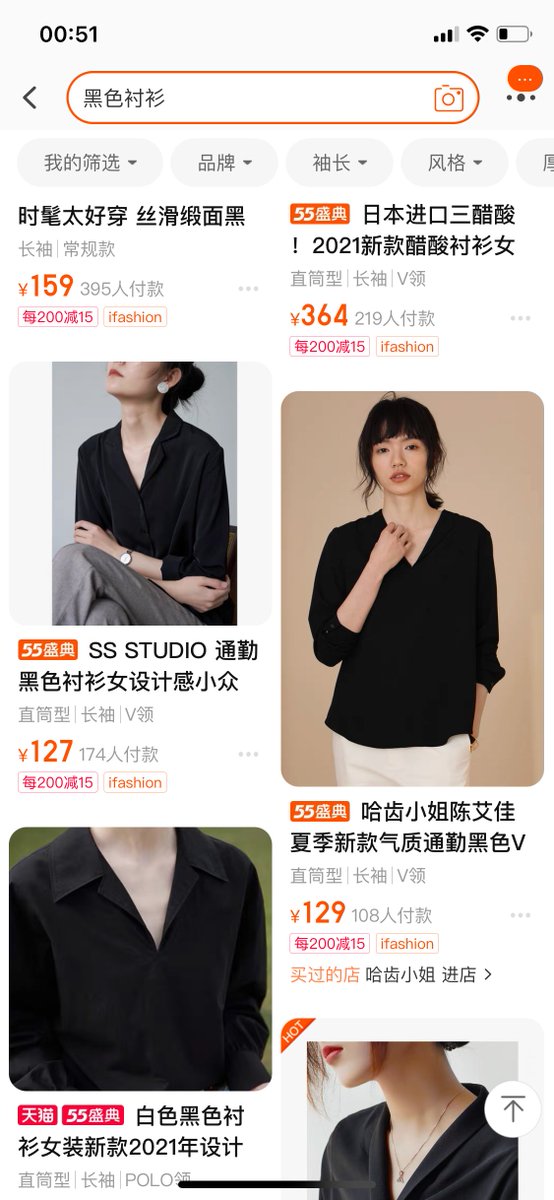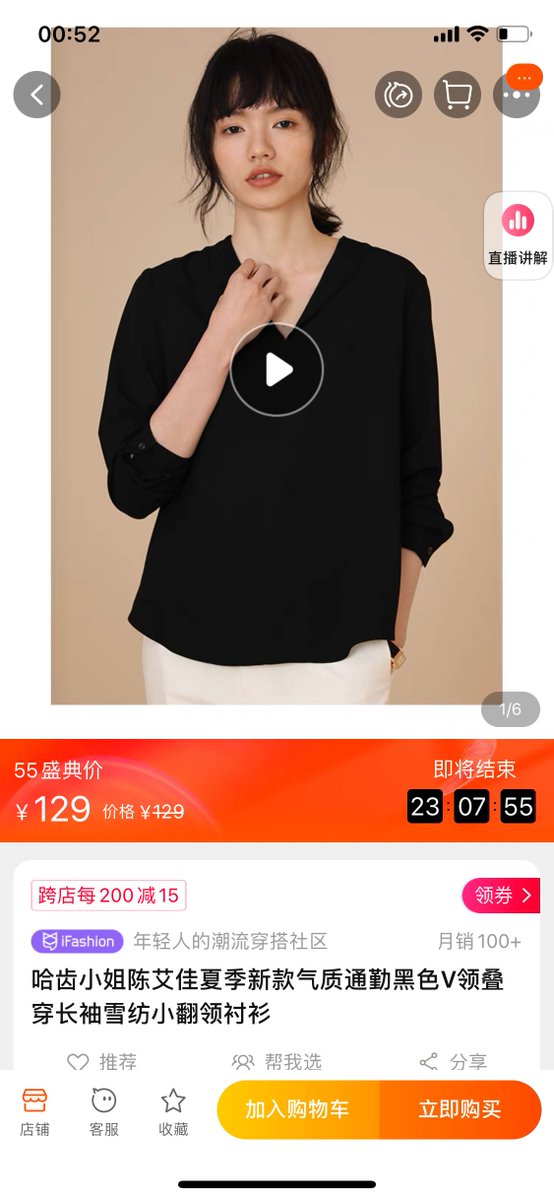1) Let's talk about how Taobao (of Alibaba) approaches selling apparel in different way to Amazon (and why I think its better).
It's a mix of product design which mirrors the shopping experience, sophisticated AI recommendations and superior customer service (even to Amazon)
It's a mix of product design which mirrors the shopping experience, sophisticated AI recommendations and superior customer service (even to Amazon)
2) Amazon has a product philosophy of selling based around SKUs and high intent search. When I open the app and search for items, I often wouldn't see the same item twice. As the sellers are all aggregated around the same product SKUs.
The platform is geared towards utility.

The platform is geared towards utility.


3) Taobao's designs reflect an understanding that apparel (especially non-basic clothing) is around mimetic desire.
Their search pages will often show the very similar items sold by different shops in lifestyle photo spreads. It's also highly tailored to your previous browsing
Their search pages will often show the very similar items sold by different shops in lifestyle photo spreads. It's also highly tailored to your previous browsing
4) Seeing a similar trend come up again and again in an Instagram feed-like stream mirrors the browsing experience of popping into shops on a high street. You get a feel for what's hot and relevant for you this summer.
I searched for 'Black blouse" on both platforms
I searched for 'Black blouse" on both platforms

5) Product pages are often video and livestreaming-first. When I tap into a product, I can watch how it looks on a living person straight away or go to the livestreaming by a shop assistant. The experience is more immersive. 

6) In general the pictures are high quality and aspirational, they wouldn't look out of place in a fashion magazine. This heightens the overall aesthetic but is nothing to write home about.
What is interesting is that if we scroll down the product page, we come across...


What is interesting is that if we scroll down the product page, we come across...



7) Taobao is structured around replicating stores. So further down the page, I can see a page to the 'store' this item is from. I can see various rankings for the store itself.
I can also click through to the store anytime by the orange button on the bottom left
I can also click through to the store anytime by the orange button on the bottom left

8) Each store has its own landing page which displays its brand and new products, I can also see goods selection by different season and categories.
I feel like I'm browsing a shop. As knowing their general aesthetic, it became a form of entertainment, just like shopping irl.


I feel like I'm browsing a shop. As knowing their general aesthetic, it became a form of entertainment, just like shopping irl.



9) Of course their algorithm also make sure I see the most relevant items in the shop based on my browsing history first.
It's like the most intelligent shop assistant saw me walk through their store, saw what I looked at, gathered other items and served them to me
It's like the most intelligent shop assistant saw me walk through their store, saw what I looked at, gathered other items and served them to me

10) Lastly the customer service is individualised. I can pick an item and ask questions about it to the store operator (the responses are quick during operating hours) questions around fit, quality of clothing, etc. Good for items without extensive reviews aka the long tail items 

11) The service button is very prominent (second bottom left) and good to assuage users' trust in the store
Fulfilment is very swift and cheap. Shopping fees vary from store to store (80% of my shipping has been free but has return fees)
Fulfilment is very swift and cheap. Shopping fees vary from store to store (80% of my shipping has been free but has return fees)

12) I can then track my package's location in real-time on a map once the package is posted, I can call the delivery person's phone and vice versa if there are any issues.
Users get spoilt quickly with Chinese e-commerce.
Users get spoilt quickly with Chinese e-commerce.
13) I'm curious whether Amazon will introduce some of these elements in their product too. I think the ethos of making shopping an entertaining activity might run counter to their efficiency-oriented product approach but let's see.
I'm writing threads like this for the rest of May, follow me if you'd like these to spam your TL.
• • •
Missing some Tweet in this thread? You can try to
force a refresh








